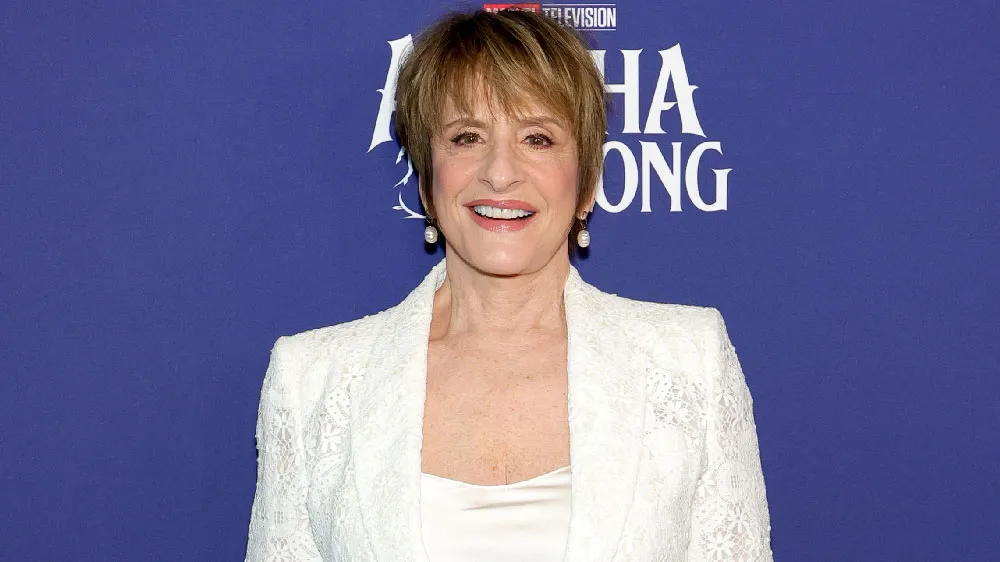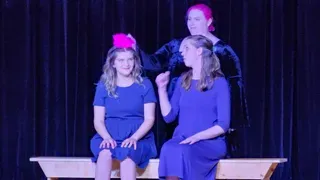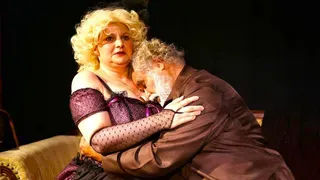May 20, 2016
In the Body of the World
Kilian Melloy READ TIME: 6 MIN.
Performance artist and playwright Eve Ensler made a huge splash in the mid-1990s with "The Vagina Monologues." She followed up with other works that could be considered feminist, including "The Good Body" and "I Am An Emotional Creature: The Secret Life of Girls Around The World," as well as broadening her focus to include the play "The Treatment." Themes of abuse and trauma -- physical, sexual, emotional, psychological, social -- are a constant.
But "The Vagina Monologues" remain Ensler's best-known work; how cruelly ironic, then, that even as Ensler was diagnosed with uterine cancer even as she was getting a haven for women in the Congo off the ground -- women who have been raped and subjected not only to the horrors of war, but the horrors of males unbound by any reasonable semblance of propriety or self-control.
In her new play, "In the Body of the World," premiering at the American Repertory Theater, Ensler ties the personal to the global, finding literary and emotional connectivity between the rape of Mother Earth and the rapes and killings of mothers -- and sisters, daughters, wives, and grandmothers -- around the globe. Her cancer and the catastrophe of the BP oil spill converge in time, as well as in her own emotional universe.
Another irony is the way in which Ensler's body is attacked from within by cancer that affects bowels and lymph nodes, as well as her lady parts, even as her lifelong quest to get back into her body after episodes of sexual and physical assault early in her life left her feeling locked out of it. In a one-woman show -- a monologue -- Ensler touches on the terror of dealing with cancer, as well as the searing indignity and, yes, the sheer absurdity of her situation. Expanding her personal struggle with disease to capital-W Womanhood, Ensler hearkens to the Greek word for uterus and its English descendant, "hysteria," and dryly -- and hotly -- demands to know just what the proper non-hysterical response should be to a checklist of manmade crises and terrors.
That's "manmade" in the sense of testosterone-fueled males of the species going around making a hash of everything in sight. Ensler never actually comes out and says "Those darn men!," but she might just well; her critique of a certain male physician, whose brutal ministrations are described with the kind of vocabulary and intensity with which a rape might be recollected, stands in stark contrast to a nurse's gentle touch, or a female hospital volunteer's selfless commitment.
The production's initially classy, clean lines -- rectilinear furnishings, from cabinet to oriental rug to high-backed wooden chair -- have a masculine affect, too, but slowly things change and evolve. Throw pillows proliferate; confetti, like flower petals, showers down, covering the stage; by the show's end what started as a minimally furnished and aesthetically reserved space has become - literally - a jungle, fertile and lush.
Is this play anti-man? No. Ensler gives props to another male doctor, one who ensured her dignity and personhood from the get-go, and she openly shares her own shortcomings. But then, she doesn't let anyone off the hook -- not her father, not her ex-husband, nor her adopted son (only seven years younger than herself and still very much, in her telling, a boy needing his mother), and certainly not the roving packs of lawless soldiers who, whatever engagements they throw themselves into against their political opposition, seem to be fighting a separate and zealously prosecuted war on women, complete with deeply shocking crimes against their persons.
"In the Body of the World" veers from tenderly told accounts of family reconciliation and sisterly support to shattering (and, be warned, triggering) recollections of bodily and spiritual suffering. Ensler begins the play with a touching evocation of mother love; she ends the play on the same note, though in a very different emotional and intellectual place. She makes us wonder whether, as a species, we're worth salvaging and sends us away thinking even if we are, we're not going to find salvation among men. Maybe women, if given their day and their due, will prove more capable stewards of our planet and our prospects.
Helmed by director Diane Paulus, this new work revels in a physical, as well as lyrical, voluptuousness, from the lively world music that serves as a score to an array of lovely costumes to the striking projections in which bright colors stand in for physiological elements (blood, tumors) as well as elemental (fire, water) and organic ones (oil, trees). Ensler's own body is part of that; it's with a naturalism and lack of inhibition that Ensler reveals her flesh and changes from one outfit to another. We're among friends here, and anyway, prudishness is so stifling to the goals and process of communication.
Indeed, communication and connection are what this all come back to. Connection to the essentials of living flesh and imperatives of respect toward human bodies (as a fact of nature) and human identities (as a social and legal phenomenon) alike. Whether finding her way back into her own physicality and her own disease-imperiled life, or reaching for some sense of the divine (animistic, pagan, whatever answers her call), Ensler is reaching both within and without, and it's intrinsic to this theater piece - from the lighting design, which bathes the audience in moments of soft illumination, to an informal "second act" of conversation, to moments of audience interaction - that we are invited along.
This material isn't perfectly woven together, but it doesn't need to be. The technical serves the organic, here, and the raw emotional extremes cohere even when the conceptual strands might not.
"In the Body of the World" continues through May 29 at the American Repertory Theatre. For tickets and more information, please go to http://americanrepertorytheater.org
Kilian Melloy serves as EDGE Media Network's Associate Arts Editor and Staff Contributor. His professional memberships include the National Lesbian & Gay Journalists Association, the Boston Online Film Critics Association, The Gay and Lesbian Entertainment Critics Association, and the Boston Theater Critics Association's Elliot Norton Awards Committee.







